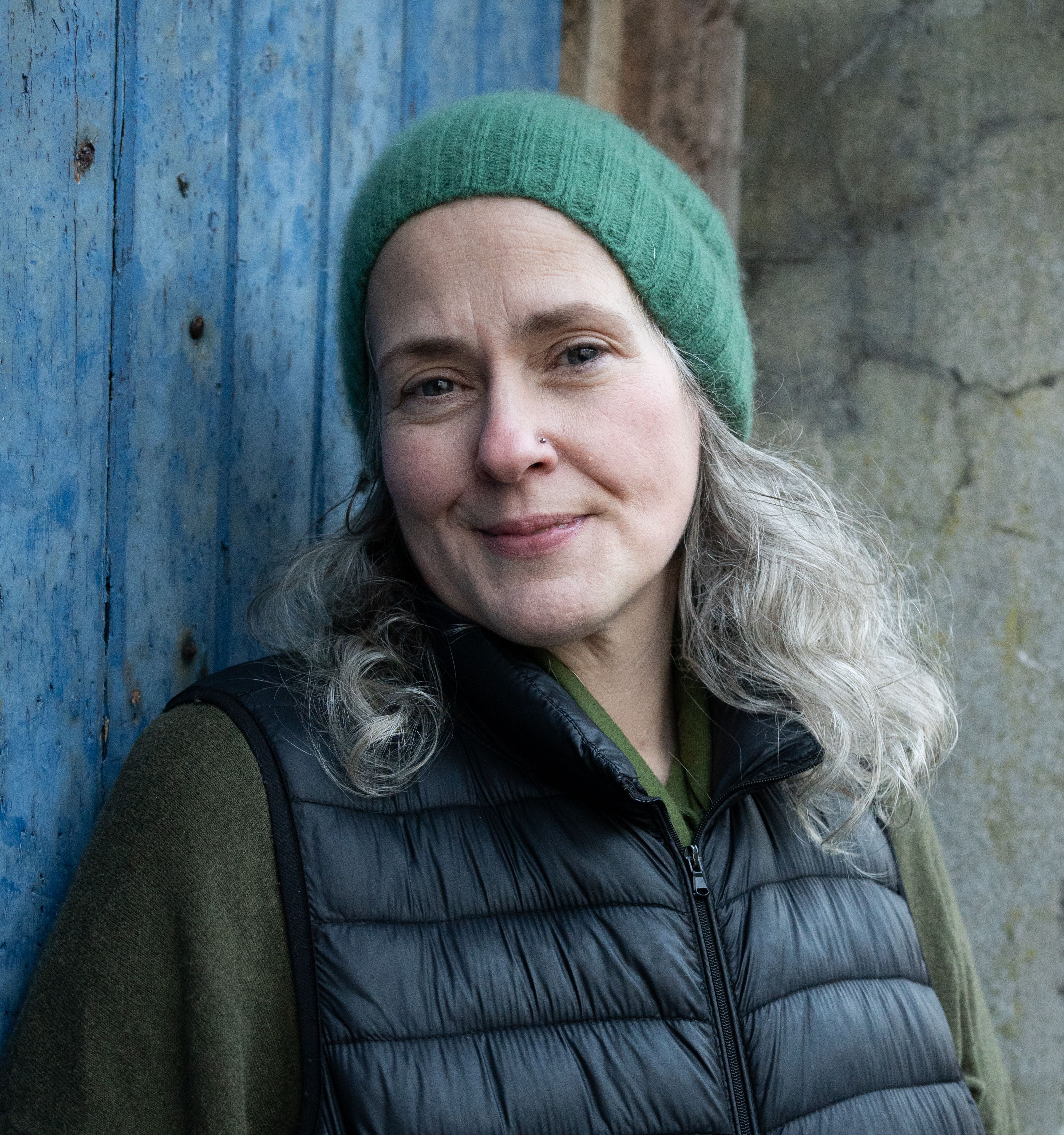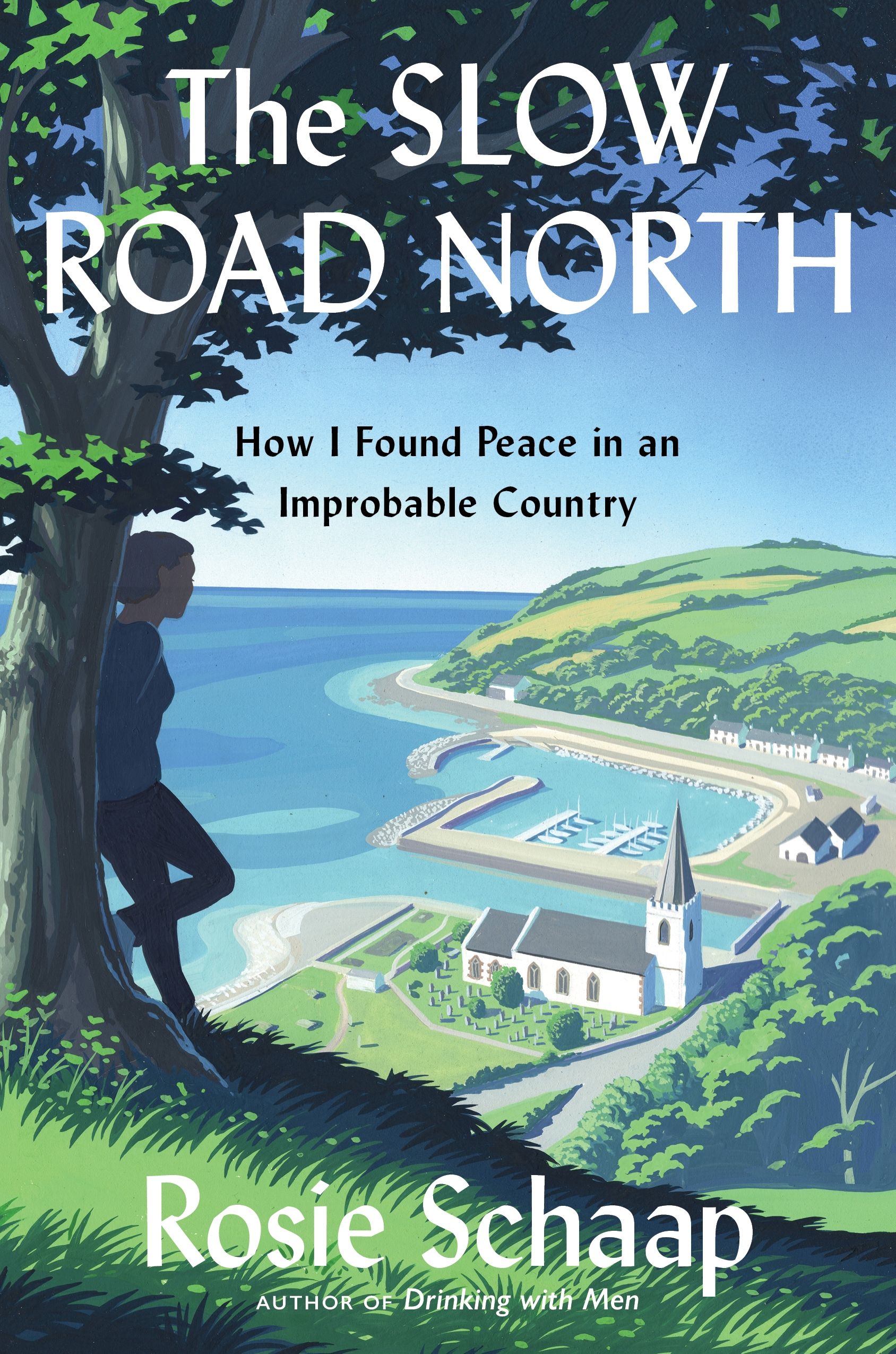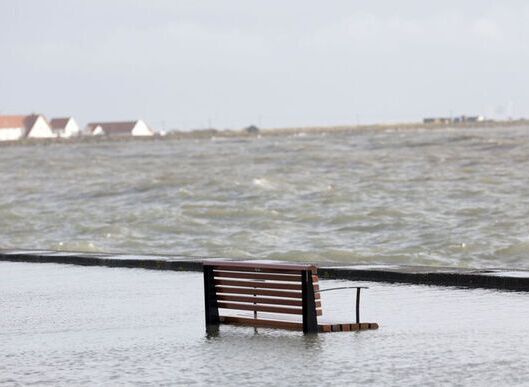In 2019, Rosie Schaap left her home in Brooklyn, a place that is world famous, to live in Glenarm, Co. Antrim, a village that even some in Northern Ireland have never heard of.
Her fondness for Ireland goes back to when she studied abroad as an undergraduate in 1991. Her time then in Dublin, and especially in Grogan’s of South William Street, provides the story for one chapter of her first book, “Drinking with Men: A Memoir.”
The specific plan, however, to relocate to a rural place, one where you can see Scotland on a clear day, has its roots in a trip 20 years later. In her book, “The Slow Road North: How I Found Peace in an Improbable Country,” she writes, “Flight is my habitual response to unhappiness—maybe a bad one, and, often, in my case, an irresponsible one. This is why, and how, I found myself in Belfast eight months after Frank died, in autumn, 2010.”
Frank was her husband. Her mother, meantime, promised not to die the same year but did so in 2011.
Early in the book, Schaap recalls the time she got chatting in a hotel bar with three women in their mid-50s, old friends on a weekend trip together, “up from Dublin to see, like me, what Belfast was all about, and they were having a fabulous time.”
As the conversation progressed, she found she was more at ease talking about her spouse and his death with these hitherto strangers, as was also the case with her old friends in Dublin, than she'd ever been in New York.

Rosie Schaap’s latest book is “The Slow Road North: How I Found Peace in an Improbable Country.” [Photo by Greer McNally]
On a later trip as a freelance writer, Schaap stayed in Glenarm and eventually she conceived the notion that she would study at the Seamus Heaney Centre in Queen’s University. Some of her friends thought the plan “ridiculous,” given that she was already a published author who herself taught graduate students. “I don’t think that I’d impressed on them how I longed to return to Northern Ireland, especially to Glenarm, and that being a student would make that possible,” she says.
Finally, Schaap deferred in 2018 the opportunity of a scholarship, but with the resolution to take it up the following year. “And I knew that if I didn’t make it happen then,” she writes, “I probably never would—and I would feel stuck, in the home where I lost my father, my mother, my husband, my aunt and uncle, my cat. It had been a beautiful home, but it was haunted. And I sensed that the grief that I had postponed would never find solace until I left my ghosts behind, until I was in Ireland.”
Schaap told the Echo about the book just published, “I call it my little book of love and loss and Ireland. At its heart, it’s about how Glenarm, a wee Northern village, and the people who live here, have helped me to face grief head-on, and to learn to live with it, in a way I could not manage in New York.”
Michele Filgate, one of several authors who’ve offered advance praise, says that, “Schaap captures the nuances of life in a small village and discovers that grief isn’t something to be moved through alone.”
Another, Jessica B. Harris, calls it, a “beautifully written meander through the byways of grief both personal and communal that begins in sadness and ends in acceptance, hope, and (dare I say it) quiet joy.”
Rosie Schaap
Date of birth: Jan. 13, 1971.
Place of birth: New York City.
Spouse: Mark Lappin.
Children: none—I’m a contently childless cat lady (although there’s a dog in my life now and no cats).
Residence: Glenarm, Co. Antrim.
Published works: “Drinking With Men: A Memoir”; “Becoming a Sommelier”; “The Slow Road North: How I Found Peace in an Improbable Country.”
What is your writing routine? Are there ideal conditions?
I was a steadfast morning writer for a long time—I much prefer writing by a window, in natural light, to electric light—but that has changed since I moved to the Antrim Coast. The summer days are so long and light, the winter days so short and dark. Now, I just write when I write.
What advice do you have for aspiring writers?
When I wasn’t very productive (to put it gently) in a college poetry workshop, my instructor handed me a note that said, “If you want to write, Rosie, then what you must do is write.” Many years later, a fellow journalist shared a similar piece of advice he got from an editor, “Move your fingers.” That’s what it really boils down to, I think—facing the blank page, putting words on it, doing your work.
Name three books that are memorable in terms of your reading pleasure.
Natalia Ginzburg’s “Happiness, As Such,” as translated by my friend and colleague Minna Proctor. I started reading it on a flight and probably irritated the people around me because I was laughing so hard (but the book, while often hilarious, also made me cry); Miriam Toews’s “All My Puny Sorrows,” which is hands-down the funniest (and wisest) novel you’ll ever read about suicide; Olga Tokarczuk’s “Drive Your Plow Over the Bones of the Dead,” because she is equally brilliant as a stylist and as a philosopher and her brain thrills me (and the poetry of William Blake, from which the book’s title comes, is a plot point).
What book are you currently reading?
Since the death of the great Edna O’Brien last month, I’ve returned to her books—some re-reads, some new to me. Right now, it’s “The Little Red Chair,” from 2015, which I hadn’t read before. It reminds me, if I needed reminding, what an extraordinarily brave writer she was.
Is there a book you wish you had written?
I can’t say there’s a book I wish I’d written (that’s cheating, and it feels too close to theft). But I am eternally awed by, and envious of, Natalia Ginzburg’s style. I sure wish I could have some of that.
If you could meet one author, living or dead, who would it be?
William Blake: not for nothing is his face tattooed on my right shoulder! (And it might interest Irish Echo readers to know that William Butler Yeats admired Blake so much, he valiantly—but unsuccessfully—tried to claim him for the Irish)
What book changed your life?
“The Secret Garden,” my childhood favorite, by Frances Hodgson Burnett. I still re-read it often, and it plays a big part in a chapter of my new book.
What is your favorite spot in Ireland?
Glenarm, of course!
(For more about Rosie Schaap, visit her website here.)








